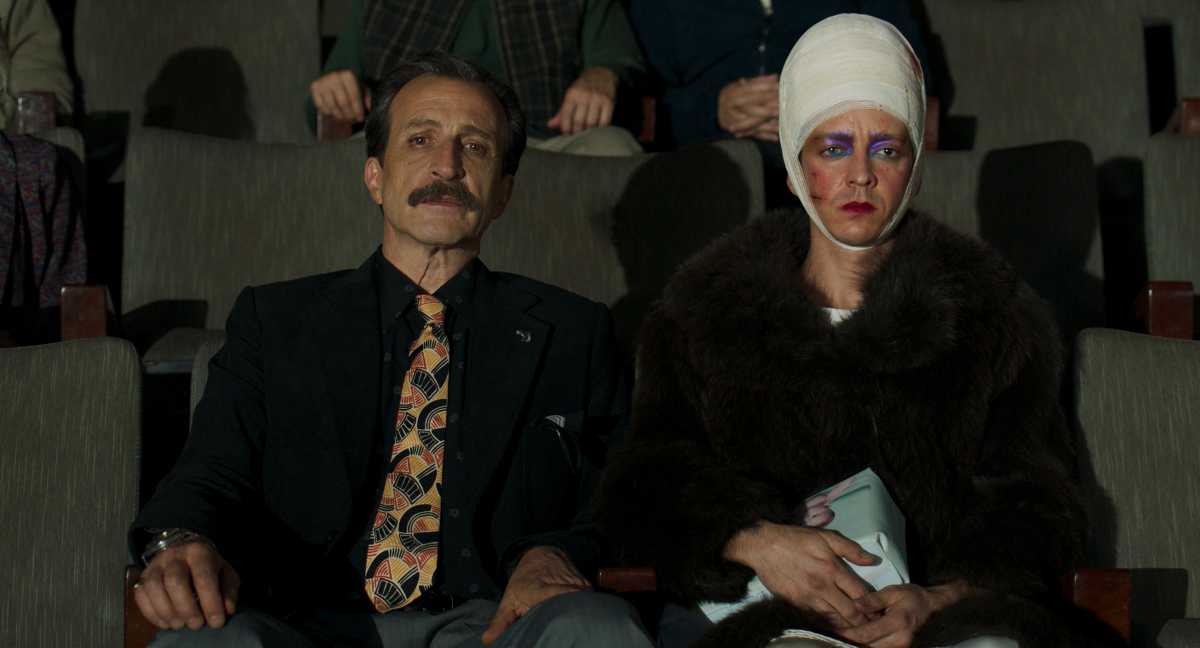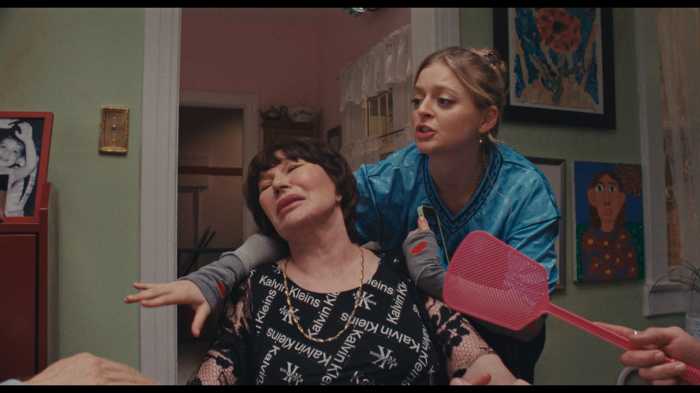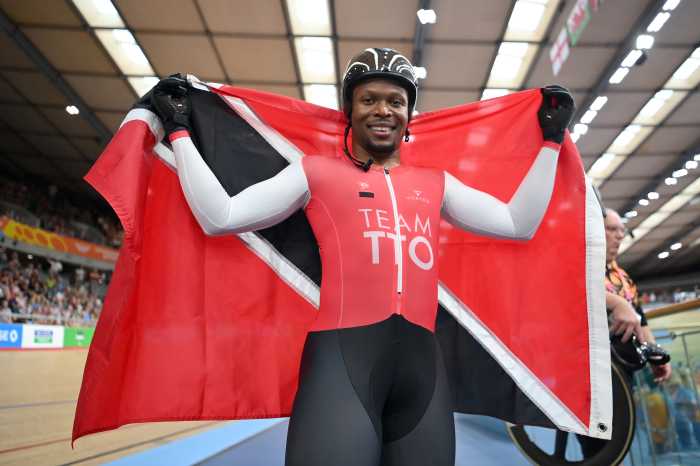In the bold, fabulous, and queer absurdist drama, “Kill the Jockey,” Reno (out gay actor Nahuel Pérez Biscayart), a once-successful jockey, is pressured to win races for Sirena (Daniel Giménez Cacho), a mobster. Reno’s girlfriend, Abril (Úrsula Corberó), another jockey, is pregnant, but she is often flirting with Ana (Mariana Di Girólamo), another jockey. After Reno has an accident during a race, he goes “missing.” He has reinvented himself as Dolores. Meanwhile, Abril and Sirena try to find him.
This plot, however, is merely a framework for Director Luis Ortega to hang a series of wildly surreal, inventive, and arrestingly offbeat sequences that include a pair of fantastic dance scenes to Dolores literally climbing the walls in a prison cell. Pérez Biscayart gives a sensational performance, speaking very few words but doing some incredible physical work. The actor chatted with Gay City News about making “Kill the Jockey.”
How did you approach playing Remo, who wants “to die to live again”?
Remo/Dolores is many beings within one being, which is a bit like what we are all about — a multiplicity of identities and beings. I didn’t approach the character as one character. I approached the whole film as a movement, as a trajectory, as something that was not meant to be stable or defined. Maybe the way I approached it was more like music or dance.
Remo was a “blooming” character. The film is about rebirth. I think the transformation starts when he falls from the mezzanine, which comes after he is told he has to die and be born again. He is coming from the mud like the lotus flower in a way — very murky. Nobody knows what he wants, or why he does what he does. After the accident happens, everything gets liberated. The idea of tragedy is inverted; what might be tragic for him is a release. Remo goes towards the feminine side where Dolores is mothering. In the prison, Dolores cares for other people, which is a way of caring for him/herself. For Remo to be born again, he has to go through all the different behaviors and attitudes we have in life.
Can you talk about playing Dolores?
When you spend time trying out wigs, and extensions, and costumes and skirts, and shoes, in a way, you are rehearsing, and you are trying to find your own woman. But Dolores was not something I rehearsed, or a woman I was trying to “find.” It was very soft, and organic. Luis said I never had to “play a woman” or “play drag;” it was about “being.” It was letting this tenderness and brightness alight on Remo in a sweet and subtle way. It was not about the pitch of her voice or other things we might fabricate. It was more embodying her. I don’t feel this film is about Remo transitioning; it was about identity and freedom. All the other characters don’t react much to the fact that Remo is now [presenting as] a woman. He was a famous jockey, and they just tell her that she is beautiful and pretty without asking “what happened to you?” The film embraces the evolution of the character in a delicate way. We don’t think he decided to be a woman. It’s the character’s natural drifting.
The film has many moments you just accept. That is its magic. You just recalibrate every scene and want to see what happens next.
It is like the film is moving faster than your perceptions.
Abril becomes intimate with Ana, Sirena kisses Remo during an auction, and there are homoerotic scenes such as one where Sirena addresses five naked jockeys in a sauna. What can you say about all the queer content? Is this all to “queer” the story and show how life can be if we go off track — as Remo does — and rejects society’s rules?
You said something about escaping the norms or the rules. This idea of horse racing is running in circles, and Remo’s accident takes him off that path, which is a metaphor for Remo’s life going off track — in a good way. Gender is a violent and oppressive prison. Some suffer more than others. Even those in heteronormativity, embodying toxic masculinity imposes violence. True liberation could be embracing “queerness,” or identity freedom and thinking of identity as a verb instead of a noun — all those things that are hard to achieve. The whole system is built on this unjust unfair structure around gender. We have to be alert to that, so we don’t fall in those traps. This film is an invitation for that. It is not a film that is indicating or proscribing things. It is posing questions for you to get lost in. You have to find your own way with the film and within your own perception. The film is trying to provoke that in the spectator.
Did you meet with jockeys or train racing horses for the role?
I trained with a jockey, which is different from horse riding because your butt doesn’t touch the horse. You have to be flexing. It is extremely tiring. Your thighs burn so much. Spending time with jockeys, smelling the horse, feeling what muscles burn and ache — that configures how you walk. These things get impregnated in your body, and that plays a role during shooting. I trained two weeks before shooting. I got quite good, galloping and flexing on the horse and turning. But, of course, you never get up to the speed the jockeys get, 70-78 kilometers an hour. They are like adrenaline junkies. They are crazy, naughty, and mischievous.
I suspect you are a little bit like that, Nahuel!
I’m a little jockey in real life without riding horses. [Laughs]
The film can be read as an allegory, an existential treatise on identity, or possibly, it is just meaningless. What are your thoughts on the film’s message?
The fact that you are mentioning questions around the message of film is a good thing. I don’t like messages. I like films where I lose the notion of time, identity, evil, and good. They allow me as a spectator to be actively participating in the film. That is the same approach Luis takes, and it is in the theme of the film, which is about losing identity and doubting and questioning everything that is this human fiction that we all built. There is no message. Anybody can make their own reading of the film. This film creates a space for the spectator to do their own voyage. Why are we so obsessed with plot when our lives are so multilayered? I want more complexity, so my life gets enriched.
“Kill the Jockey” | Directed by Luis Ortega | Opening July 2 at Film Forum | Distributed by Music Box Films.





































